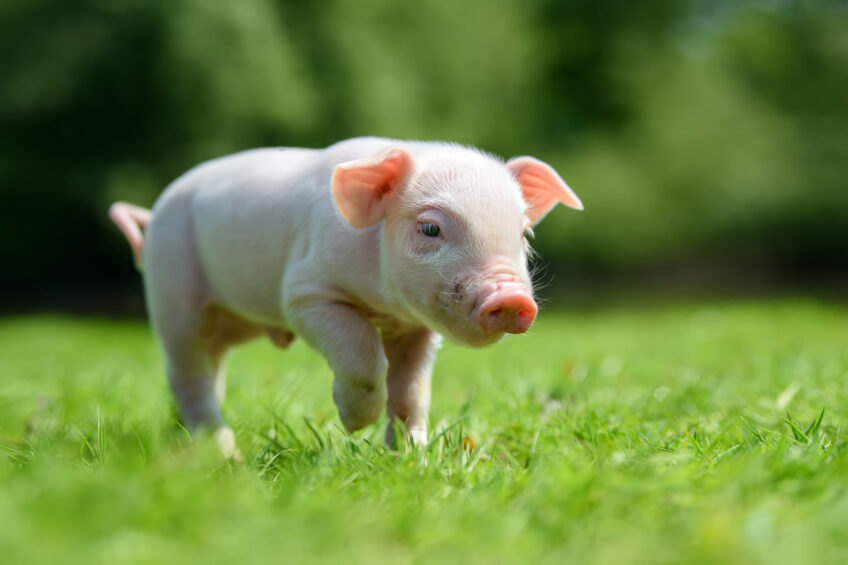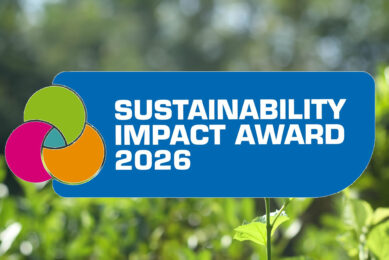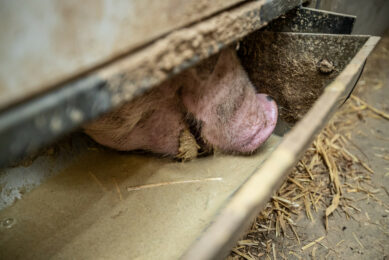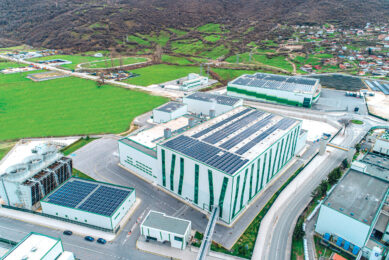Insects: A turnkey solution to feed sustainability

In December 2024, the Regulation on Deforestation-Free Products (EUDR) is anticipated to take effect, aiming to reduce deforestation and forest degradation. Insect ingredients are a turnkey feed solution, promising a lower footprint and better performance.
SUSTAINABILITY & WELFARE SPECIAL 2024 – read all articles
The new Regulation on Deforestation Free Products (EUDR) will require businesses selling within or exporting from the EU to show that their forest-based products (including soy and palm oil) are legal, not sourced from deforested land, and do not contribute to degradation. The new requirements add a layer of urgency for the livestock industry which is already facing the challenge of making production more sustainable while ensuring profitability and maintaining animal health and welfare.
Low-footprint feed
A logical starting point in minimising the environmental impact is feed. Insect ingredients are an interesting option here: they have an amazingly low footprint, demonstrate good performance, and support animal health. With fundamental research complete, they are ready now for commercial implementation and – with scaling of the industry – they are becoming economically viable.
Insect ingredients in the market
Over the past 15 years, leading global company Protix has been perfecting its black soldier fly larvae (BSFL) ingredients for use in a number of livestock feed solutions. The company offers 3 high-quality and scientifically proven products that benefit livestock health and performance: LipidX, ProteinX and larvae. LipidX is a purified fat that contains 40% lauric acid, which is known for its antimicrobial properties in the digestive tract. A healthy gut means a stronger immune system. Protix’s insect oil is a rich source of medium-chain fatty acids that provides an easily digestible, quick source of energy.
ProteinX is an insect protein meal with a balanced profile of 53-59% protein, lipids and micronutrients. BSFL protein has a complete and favourable amino acid profile, which is essential for animal growth and health. This natural source of nutrients is highly digestible as shown in a study with laying hens published in the Journal of Insects for Food and Feed. The versatile larvae can be fed to both chicken and piglets. New research conducted with Schothorst Feed Research shows that live larvae can be used in combination with local (a tick for sustainability!) plant proteins to successfully replace soy in the diet of laying hens. The larvae of Protix’s black soldier fly are nutritious, and providing them as feed helps to reduce feather pecking. The study by Schothorst Feed Research is complemented by later studies by Ipema e.a. and Dörper e.a.
Naturally sustainable
A new Life Cycle Assessment (LCA) conducted by the private, non-profit research provider Deutsches Institut für Lebensmitteltechnik (DIL) shows impressive results for the 3 products from Protix. Highlights include:
- LipidX insect fat uses 99.9% less land than coconut oil
- ProteinX insect meal reduces CO2 emissions by 71% compared with soy meal
- Larvae show 0.198 kg CO2 eq. per kilogram of product
Insect ingredients performance
For livestock farmers, key parameters in terms of animal development, growth, wellbeing and health drive the bottom line. Scientifically-proven data are essential. In addition to the outstanding sustainable scores from the DIL Life Cycle Assessment, scientific studies evidence the excellent performance of insect ingredients. Based on these, and their own findings, a number of leading names in livestock are already reaping the benefits of insect-based nutrition.
Broilers
Among those companies is a Dutch private feed company that has conducted a study with broilers and shown that Protix’s LipidX is a great alternative to the soybean and palm kernel oil commonly used (Figure 1). A diet with 100% insect oil resulted in an improved feed conversion ratio (FCR), better growth, and reduced mortality compared with the control diet based on plant and vegetable oils.
Figure 1 – Protix insect oil reduces mortality, improves end weight, and results in a significantly better feed conversion ratio (FCR).

The positive impacts of BSF larvae as broiler feed have been documented in a number of papers, including a study with Wageningen University and Research showing improved animal welfare of fast-growing broilers. Further research looked at the impact of larvae on slow-growing broilers. Its highlights: scattering dried or live larvae stimulates broiler foraging behaviour long-term. Adding larvae to broiler diets can improve leg health and litter quality. Moreover, it also aids production performance. The body of research has been further complemented with studies into the positive effects of different black soldier fly larvae products on slow-growing broiler performance.
Laying hens
A digestibility study with laying hens investigated the nutritional value of a commercial insect meal derived from the black soldier fly. A diet including 18% insect meal demonstrated good apparent metabolisable energy (AME) and apparent total tract nutrient digestibility coefficients (ATTDC). The calculated standardised ileal amino acids digestibility coefficient (SIDC) for the insect meal suggests it is a promising alternative protein source to soybean meal (SBM) in poultry diets. It even surpasses soybean meal in some qualities!
Turkey
The effect of live BSF larvae on turkeys is also notable: daily feed intake and body weight gain were significantly increased, resulting in greater body weight by 5 weeks of age.
Piglets
A study on piglets has shown that Protix’s insect oil boost their immunity and improves feed intake during the critical weaning period. Thanks to the high lauric acid content, piglets’ delicate intestinal villi and entire digestive system could develop optimally, resulting in better gut health, less diarrhoea, a stronger immune system and reduced reliance on antibiotics, plus lower mortality rates.
Join the future of food, today
The December 2024 deadline for EUDR-compliance is fast-approaching. Protix’s insect ingredients offer a ready-to-go solution to make livestock more sustainable. Plus there is no additional burdensome paperwork required to comply with the new legislation. Through its ongoing research and international scale-up, Protix is uniquely positioned to supply high-performing insect ingredients in the same consistent quality with the reliability of on-time supply. We invite livestock stakeholders to join us on the exciting journey to create sustainable insect-based animal nutrition.
References are available on request.






